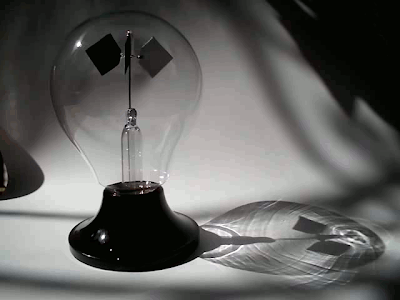Puppies are very new.
 |
| My atoms a few decades ago. |
That's the way we see the world
To get to the heart of chemistry, though, you need to grasp that the parts of the puppy and the parts of the rock are both likely to be very old. The puppy happens to be recombining tiny bits and pieces with every puppy pant, and the rock, well, not so much, but the parts the puppy gloms from its world are very old parts.
***
When we observe a chemical reaction, we see a miraculous transformation of substances. We see new substances erupt from the old, and the new substance clearly is not the same as what we started with.
What we don't see, though we can figure out fairly easily these days, is that the parts we end up with are identical to the parts we had going in. Atoms are rearranged, and new substances created, but we still have exactly the same number of the specific types of atoms we started with.
Until a child grasps this, internalizes this, believes this, there is little reason to hope that she will develop some passion towards what of the grand ideas we have in science, the conservation of mass.
***
Most of the cells in my body are under 10 years old. My eldest skin cells are barely a few weeks old, my red blood cells gone by 4 months, my liver is barely a year old.
I am not the man I was. You're not the same mass of cells you were a few years ago, either. Still, we see ourselves as whole--it's how we function.
Imagine, though, being able to feel the passage of particles into, through, and out our bodies. Imagine you believed that the heft of mass you measured on the scale (prompting New Year's resolutions) is not the same mass of you last New Year's Eve.
 |
| The shells sit in the garden, the meat became part of me. |
If you can imagine this, your view of the world changes. You feel more a part of the world around you in you, of you. You might even care a little bit more about this world.
***
While we eat to gain some free energy captured from the sun by the plant around us, we also eat to replace the stuff of us. We take what we eat, break it down into smaller molecules, then use the free energy we glom from breaking stuff into simpler particles to rebuild it into red blood cells, liver cells, skin cells, us cells.
My students get terribly confused about this at times--they have been told over and over again that you eat food for energy, my and (I suspect) some have told my lambs that food is turned into energy, which, of course, is wrong.
Food is stuff. Stuff is stuff, and energy is energy, and ne'er the twain shall meet, at least not in the Newtonian universe of high school biology.
The whole eating thing has been reduced to magic, as has much of what passes for science in elementary schools these days.
So next time someone asks you how old you are, ask him which organ? If he says he means the whole you, well, tell him about 7-10 years on average, but no one knows for sure yet.
If that's too confusing, then just stick to the atoms-most of those will be a few billion years old, and will be around for a few billion more.
This is not semantics--this is science.
Lay some real science on your kids then stand back!

























































